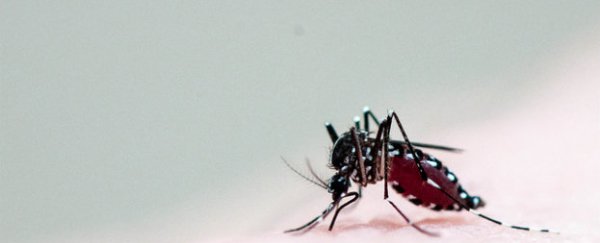Female mosquitoes that spread dengue and yellow fever didn't always rely on human blood to feed their eggs - in fact, their ancestors fed on forest animals such as guinea pigs and horses. But thousands of years ago they recognised a distinctive human odour called sulcatone as a source of food, and switched from feeding on furry forest animals to sucking the blood of people, a new study has found.
To investigate the evolution of this attraction, researchers from Rockefeller University in the US looked at the genes of two mosquito species with different diets - the black Aedes aegypti formosus mosquito, and its light-brown cousin, Aedes aegypti aegypti. A. aegypti formosus prefers human blood, and has managed to spread yellow fever, dengue, and chikungunya viruses throughout the world. A. aegypti aegypti on the other hand, lives in the forest and prefers to feed on forest animals.
The team decided to crossbreed the two species to create thousands of genetically diverse grandchildren. They then separated the mosquitoes based on their preference for forest animals or humans, and compared the genes of the two groups. The results identified 14 genes that were strongly linked to liking humans, but one odour receptor gene - Or4 - was particularly active in the mosquitoes that crave human blood.
To find out what odour the Or4 gene was making the mosquitoes attracted to, the researchers had humans and guinea pigs wear stockings for a day (and, no, unfortunately we weren't able to find a photo). The stockings were then placed into a machine to separate their smell into the hundreds of chemicals that make up a body's scent. One chemical in particular - sulcatone - was identified to be present only in the tights worn by humans.
The team points out that there are probably other scents and genes that contribute to mosquitoes' preference for humans. But whatever it is, it must be addictive, because the switch in diet for mosquitoes involved a big change in their lifestyle, such as moving into areas inhabited by humans.
"It was a really good evolutionary move," said Leslie Vosshall, neurobiologist and lead researcher, in a press release. "We provide the ideal lifestyle for mosquitoes. We always have water around for them to breed in, we are hairless and we live in large groups."
The findings were published this week in the journal Nature.
Source: Rockefeller University
